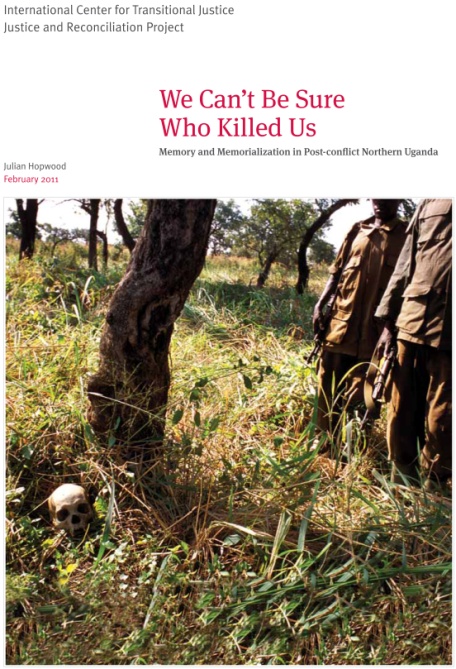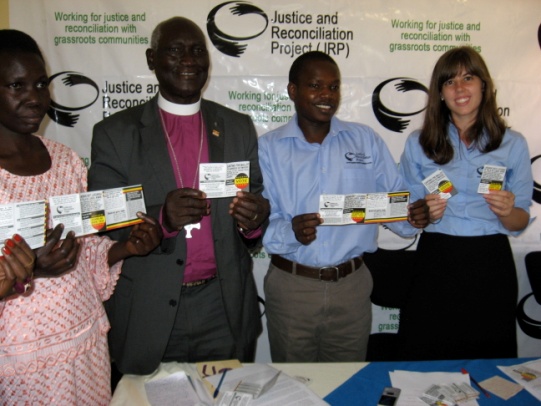
On Friday, May 20, 2011, the International Center for Transitional Justice (ICTJ), the Justice and Reconciliation Project (JRP), and the Uganda Victims Foundation (UVF), organized a one-day dialogue between representatives of the Justice, Law and Order Sector (JLOS) and civil society from northern Uganda. The event was held in Lira Town and was attended by 42 representatives, including His Worship Tadeo Asiimwe—Registrar of the War Crimes Division—and Ms. Rachel Odoi-Musoke—of the JLOS Secretariat.
The dialogue provided an opportunity for the two JLOS representatives to share updates and developments on TJ in Uganda, and more specifically the work of the JLOS Transitional Justice Working Group and the War Crimes Division (WCD), soon to be renamed the International Crimes Division (ICD). It also provided space for the various civil society representatives to ask questions and share comments on the processes involved and how these could impact their communities.
This event coincided with national community consultations by JLOS to gain perspectives on truth-seeking, traditional justice and reparations, and followed a consultative meeting organized by ICTJ and JRP on April 21st in Gulu with civil society on an outreach strategy for the WCD.
To download the full meeting summary, click here.




 On March 4th, JRP and the International Center for Transitional Justice (ICTJ), with support from the Austrian Development Cooperation, will launch their new joint report, We Can’t Be Sure Who Killed Us: Memory and Memorialization in Post-Conflict Northern Uganda.
On March 4th, JRP and the International Center for Transitional Justice (ICTJ), with support from the Austrian Development Cooperation, will launch their new joint report, We Can’t Be Sure Who Killed Us: Memory and Memorialization in Post-Conflict Northern Uganda. 
 Today the Justice and Reconciliation Project (JRP), in partnership with the South Africa-based Institute for Justice and Reconciliation (IJR), commenced a series of grassroots consultations in northern Uganda to explore local perspectives on transitional justice.
Today the Justice and Reconciliation Project (JRP), in partnership with the South Africa-based Institute for Justice and Reconciliation (IJR), commenced a series of grassroots consultations in northern Uganda to explore local perspectives on transitional justice.
